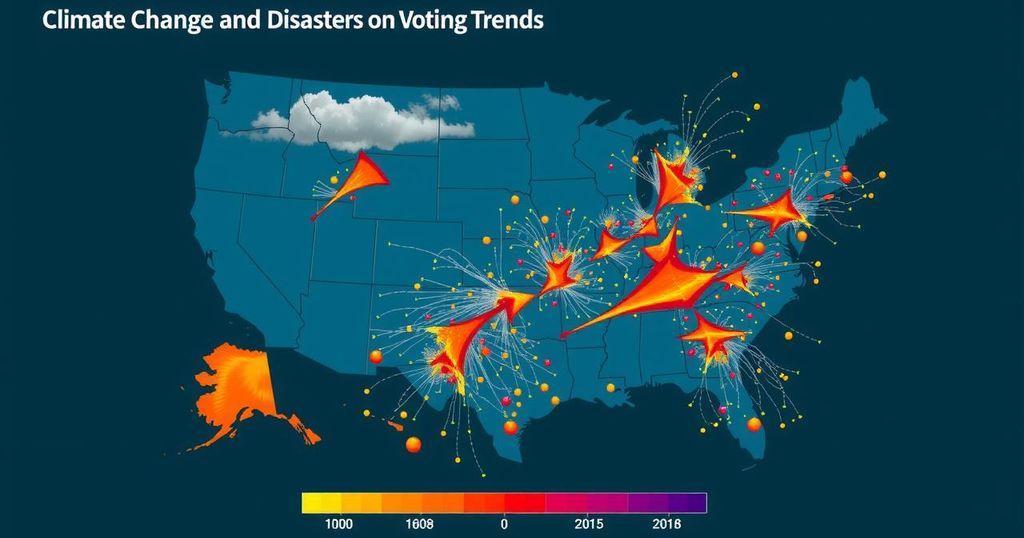Lawrence Hamilton’s research highlights that climate change-related disasters are not significantly influencing voter behavior due to misinformation and identity alignment. While awareness had previously grown, it has stalled following the pandemic. Hamilton notes younger generations may yield different electoral implications in the future as they express more concern over climate issues and human responsibility for them.
Climate change has intensified various natural disasters across the United States, manifesting in larger wildfires in the West, stronger hurricanes in the South, and rising temperatures nationwide. However, the impact of these issues on voter behavior appears limited, according to Lawrence Hamilton, a researcher at the University of New Hampshire specializing in public perspectives on climate change. While public awareness of climate issues had been increasing over the years, this trend has waned since the pandemic, largely due to the proliferation of misinformation regarding governmental and scientific narratives. Hamilton explains that this rise in misinformation contributes to the lack of electoral influence of climate change on voter decisions. He highlights that, “voting has become really tied to identity,” meaning that personal beliefs regarding climate change have become deeply ingrained in individual identities. This phenomenon creates a significant barrier to changing one’s stance, particularly among individuals aged thirty and older, whereas younger voters exhibit a greater propensity for reevaluating their views on such matters. Further emphasizing this generational divide, Hamilton notes that younger individuals are more inclined to attribute climate change to human activities and express concern regarding its potential consequences. This suggests that future elections might see a more pronounced influence of climate-related issues, especially in regions experiencing heightened climate impacts. The implications of these findings suggest that as societal perceptions of climate change evolve, voter behavior may begin to reflect a stronger correlation with climate concerns in coming elections.
The discourse surrounding climate change remains a critical issue, particularly as it correlates directly with natural disasters that are increasingly prevalent. Understanding how climate change affects voter behavior is essential, especially as researchers like Lawrence Hamilton analyze trends in public awareness amid rising misinformation. This phenomenon is particularly noteworthy given the complex interplay between identity politics and environmental issues, which informs how different demographics engage with such topics based on personal beliefs and societal narratives.
The research presented by Lawrence Hamilton indicates that climate change issues currently have limited sway over voter decisions, largely due to misinformation and the intertwining of personal identity with political beliefs. However, as younger generations become more engaged and aware of climate issues, it is plausible that future electoral cycles may see a greater impact of climate-related concerns. Continued research will be necessary to monitor these evolving dynamics and their implications for upcoming elections.
Original Source: www.upr.org






